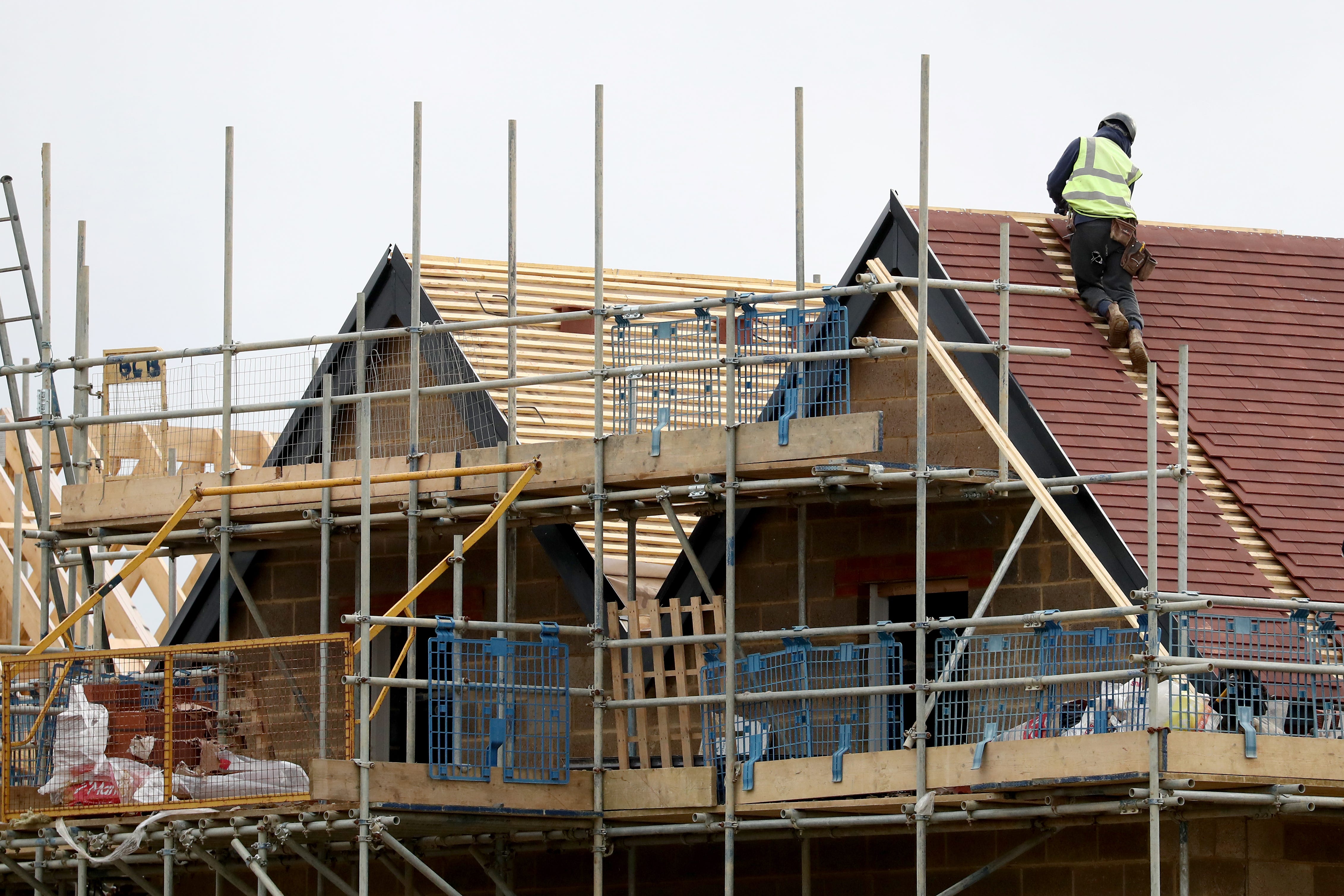Planning reform Bill to ‘get Britain building’ unveiled in King’s Speech
Planning reforms were set out in the King’s Speech to help Labour meet targets to develop the country’s infrastructure and build 1.5 million homes.

Your support helps us to tell the story
From reproductive rights to climate change to Big Tech, The Independent is on the ground when the story is developing. Whether it's investigating the financials of Elon Musk's pro-Trump PAC or producing our latest documentary, 'The A Word', which shines a light on the American women fighting for reproductive rights, we know how important it is to parse out the facts from the messaging.
At such a critical moment in US history, we need reporters on the ground. Your donation allows us to keep sending journalists to speak to both sides of the story.
The Independent is trusted by Americans across the entire political spectrum. And unlike many other quality news outlets, we choose not to lock Americans out of our reporting and analysis with paywalls. We believe quality journalism should be available to everyone, paid for by those who can afford it.
Your support makes all the difference.Labour has unveiled legislation to “get Britain building” with reforms the new Government says will help it achieve its housebuilding and infrastructure project goals.
The Planning and Infrastructure Bill, one of 40 pieces of proposed legislation unveiled in the King’s Speech on Wednesday, sets out reform to the planning system.
The King said in his speech: “My ministers will get Britain building, including through planning reform, as they seek to accelerate the delivery of high-quality infrastructure and housing.”
We will reform the planning rules to build the homes and infrastructure the country desperately needs
Prime Minister Sir Keir Starmer said: “We will reform the planning rules to build the homes and infrastructure the country desperately needs.”
The Bill aims to speed up building projects by simplifying the consent process for major infrastructure schemes and modernising planning committees so they can process applications more quickly.
The legislation would also reform compulsory purchase compensation rules so that compensation paid to landowners is “fair but not excessive” when it comes to building affordable housing or important social and physical infrastructure.
This is with the goal of unlocking more sites for development and improving land assembly – the process of uniting separately owned parcels of land such as neighbouring gardens – which the Government expects will make housebuilding faster and make housing more affordable.
The Government will seek to use development to fund nature recovery in cases where both are stalled. It will explore how to potentially do this over the summer.
The majority of the Bill is expected to extend and apply to England and Wales. Some measures may also extend and apply to Scotland.
Chancellor Rachel Reeves set out plans last week to build 1.5 million new homes over five years across the UK, including by reinstating compulsory housebuilding targets for local councils.
Ms Reeves also said Labour would reform the planning system to make it easier to build houses on less desirable parts of the green belt, which Sir Keir Starmer has dubbed the “grey belt”.
Labour’s Pat McFadden, the Chancellor of the Duchy of Lancaster, was quizzed on his morning media round on Wednesday about how the Government would tackle nimbyism and whether individual MPs would block developments, as well as what kind of land new housing could be built on.
Mr McFadden told BBC Radio 4’s Today programme: “We were very clear during the election campaign that we would come out of this on the side of getting things built more quickly.
We don’t want to sacrifice the beautiful parts of our countryside. But we do have to get things built in this country
“That may be controversial in some places, I’ve no doubt that it will be.”
But the Labour MP for Wolverhampton South East added that doing nothing would mean aspirations of home ownership or even renting a home at a reasonable price would continue to be unrealisable for a generation of young people.
He said he could not guarantee that MPs would not try to block developments in their local communities, telling Times Radio that they were entitled to their views.
“In the real world, there’ll be some developments that some people don’t like. That’s always going to be the case,” he said.
Chris Philp, the Conservative shadow House of Commons leader, told LBC on Wednesday he was concerned that Labour’s plans would see green belt protections “ripped up” and that local councils who are democratically elected would be “steamrolled” and ignored by the central government.
The Tories built 2.5 million homes since 2010, Mr Philp said. He conceded that the figure was well below the target to build 300,000 homes a year.
He called the term grey belt “a piece of nonsensical and shameless spin”, in comments to Times Radio.
Mr McFadden, meanwhile, said Labour’s policy was to build on “brownfield first”.
He told Times Radio: “But it’s simply a myth to say that there are parts of what we call the green belt that haven’t been built on in recent years. And it’s been done in an uncontrolled way.
“And we don’t want to sacrifice the beautiful parts of our countryside. But we do have to get things built in this country.”
The King’s address – the first speech from the throne under a Labour government for 14 years – contained 40 pieces of legislation with an emphasis on improving transport, creating jobs and accelerating the building of houses and infrastructure as Labour seeks to escape Britain’s recent cycle of low growth.